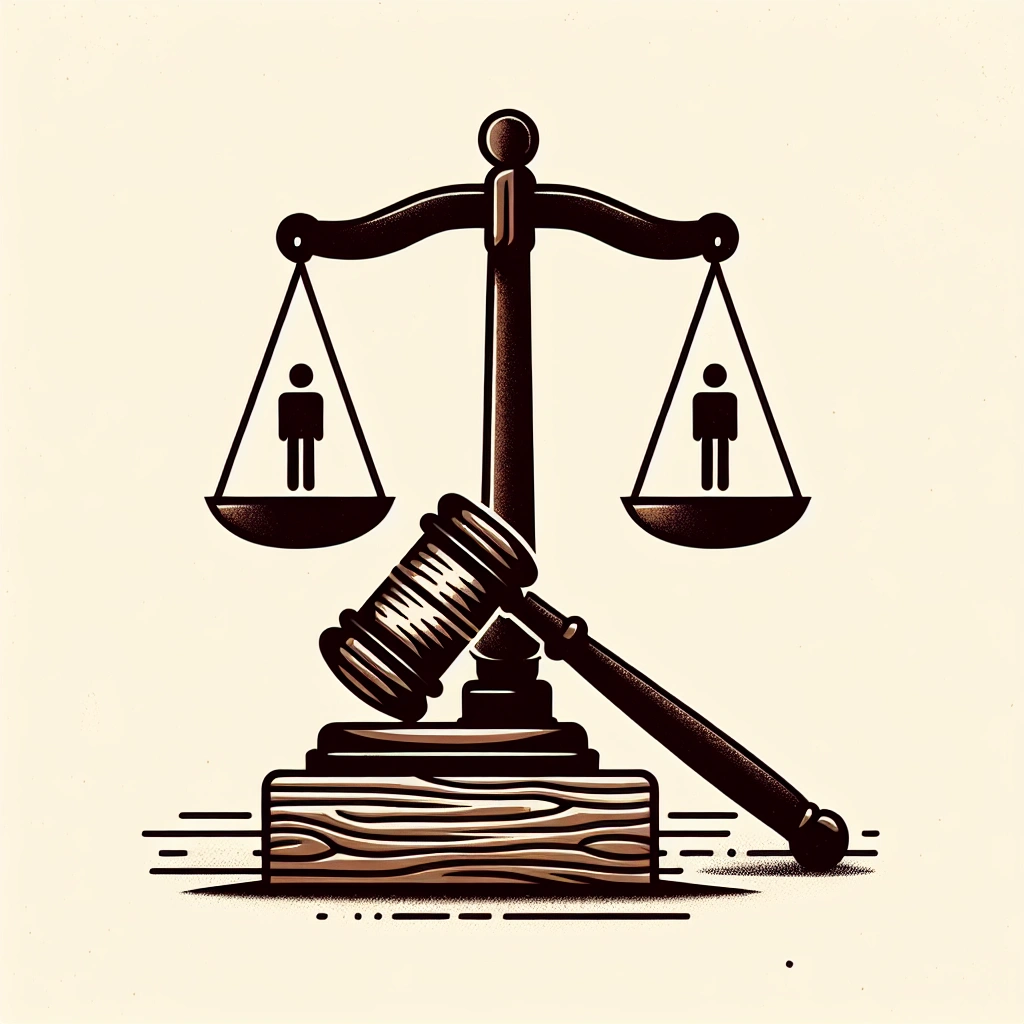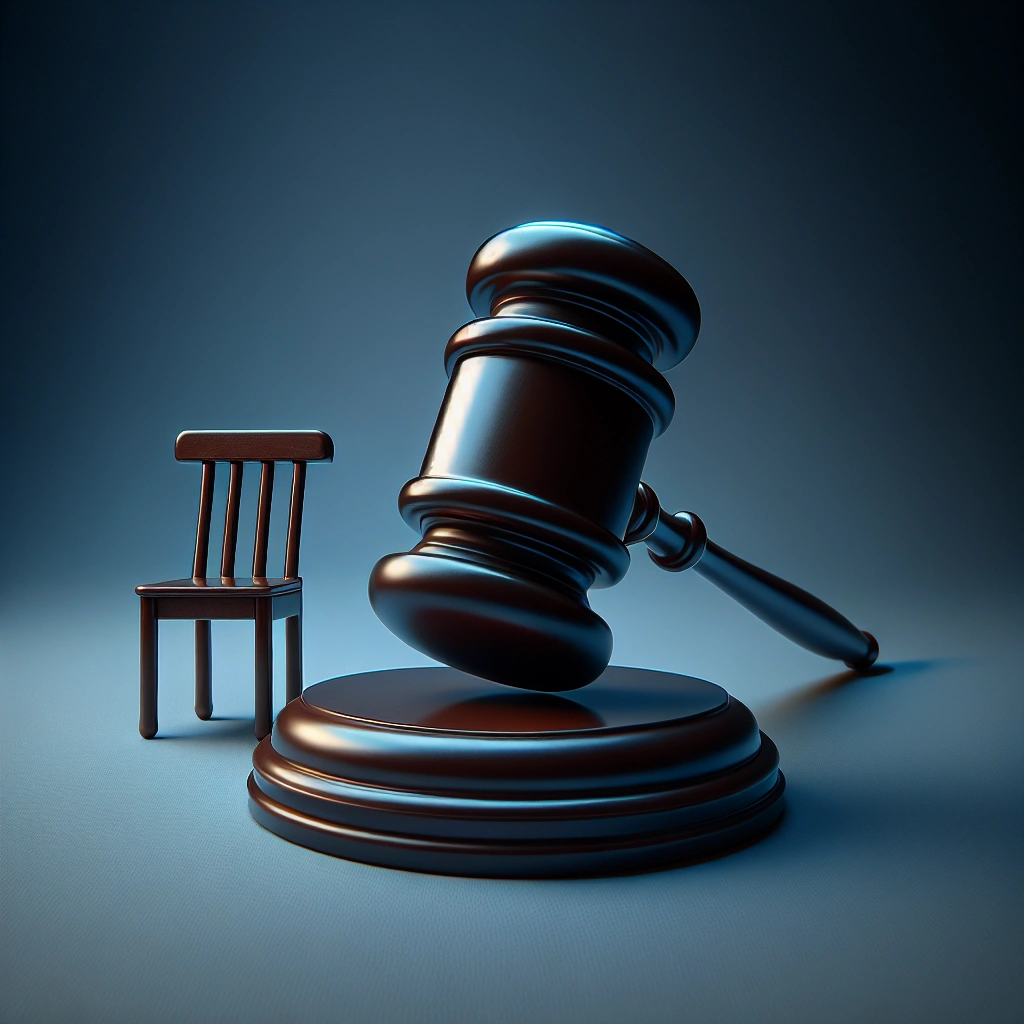Short Answer for What Happens at a Motion to Withdraw Hearing?
At a Motion to Withdraw Hearing, the court evaluates the attorney’s request to cease representation, considering factors like timing, potential prejudice to the client, and reasons for withdrawal, to decide whether to approve or deny the motion.
Imagine standing at a crossroads, the decision you make could redefine the course of your legal pursuit, facing a motion to withdraw hearing. It’s not just a procedural step; it’s a moment filled with anticipation and the unknown. This hearing could mean the difference between pushing forward with your current legal representation or navigating the complexities of finding a new advocate who understands your plight.
At such a hearing, critical factors are meticulously evaluated. The judge examines the timing of the motion, the potential prejudice to the client, and the attorney’s reasons for withdrawal. This isn’t merely administrative; it’s a pivotal moment that could influence the outcome of your case.
And what happens next? Depending on the judge’s decision, the landscape of your legal representation could drastically change. Approval signifies a quest for new representation, while denial maintains an existing, albeit possibly strained, attorney-client relationship. It’s a process both complex and consequential, directly impacting the trajectory of your legal journey.
-
Courts consider the timing of the motion, evaluating whether it disrupts the case progress.
-
Prejudice to the client is assessed to ensure withdrawal doesn’t leave them at a significant disadvantage.
-
The reasons for withdrawal are scrutinized, including non-payment of fees or ethical conflicts.
-
Outcomes can either be approval or denial of the withdrawal, impacting the case timeline and client’s need for new representation.
-
Clients must actively seek new representation and keep their case organized should the motion to withdraw be accepted.

Understanding Motion to Withdraw Basics
A Motion to Withdraw is a formal petition by an attorney to end their representation of a client in court due to various reasons such as conflicts of interest, non-payment of fees, lack of cooperation from the client, involvement of the client in illegal activities, or the attorney’s inability to continue the representation. This procedural action initiates a court hearing where the judge evaluates the request and decides the outcome, aiming to ensure that all parties are represented competently and ethically. It underscores the importance of maintaining the integrity of the legal process, the ethical standards of the legal profession, and the effective administration of justice.
Definition and purpose of a motion to withdraw
A Motion to Withdraw is a formal request made by an attorney who wishes to cease representing their client for various reasons. In essence, it’s a legal document used to communicate to the court that the lawyer seeks to be relieved of their duties in a specific lawsuit. When this motion is filed, it triggers a set of procedural events culminating in a hearing. During this hearing, the judge reviews the merits of the motion and decides whether or not to grant the attorney’s request to withdraw from the case.
The primary purpose of a motion to withdraw is to allow lawyers a proper, ethical way to step back from legal representations that they can no longer uphold. This could be due to multiple reasons, ranging from conflicts of interest to non-compliance by the client.
It’s paramount for the legal process since it ensures that clients are represented by attorneys who are fully committed and capable of handling their cases effectively.
Circumstances prompting an attorney to file for withdrawal
There are several common reasons why an attorney might seek to withdraw from a case. Each of these circumstances focuses on ensuring the integrity of the legal process and the effective representation of the client is maintained.
Here are some of the primary situations prompting such action:
-
Conflict of Interest: Lawyers must avoid any scenario where a conflict of interest arises. If an attorney discovers a conflict post-accepting a case, they may need to withdraw to uphold ethical standards.
-
Non-Payment of Fees: Lawyers rely on clients to honor their payment agreements. When clients fail to do so, attorneys may find it necessary to withdraw from providing their services.
-
Lack of Cooperation from the Client: The attorney-client relationship thrives on cooperation. If a client consistently refuses to provide necessary information or acts against their attorney’s advice, it may hinder the case’s progress and lead to a withdrawal request.
-
Illegal or Fraudulent Activities: Should an attorney discover that their client is involved in illegal activities or is attempting to use the attorney’s services to commit fraud, they are legally obliged and ethically mandated to withdraw from representation.
-
The Attorney’s Incapacity to Continue Representation: Whether due to health issues, leaving the practice of law, or other personal reasons, if an attorney is no longer able to adequately represent their client, they must seek to withdraw from the case.
Each of these scenarios underscores the ethical and professional considerations attorneys must navigate daily. When a lawyer files a motion to withdraw from a case, it’s not a decision made lightly. It’s a significant step, taken to preserve the integrity of the legal process, ensure the fairness of proceedings, and safeguard the best interests of the client. Understanding these basics about a motion to withdraw offers insight into the complexities of attorney-client relationships and the legal ethics that govern procedural law.

What Happens at a Motion to Withdraw Hearing?
At a Motion to Withdraw Hearing, the court evaluates several key factors before making a decision on whether an attorney can withdraw from a case. These factors include the timing of the motion and its impact on the case, potential prejudice to the client, and the reasons provided by the attorney for wanting to withdraw, such as non-payment of fees, breakdown of communication, or ethical conflicts. Depending on the court’s assessment, the outcome can either be approval of withdrawal, leading to possible case delays and the client needing to find new representation, or denial of withdrawal, which maintains the attorney-client relationship but may result in tension and trust issues.
Court considerations during the hearing
When it comes down to a motion to withdraw hearing, folks, it’s not just any kind of hearing. It’s a spectacular one. Courts look at several important factors, like they’re choosing the best contestant in a beauty pageant. These include:
- Timing of the Motion: Is it fashionably late or inconveniently so? Courts generally consider the impact of the timing on the case. They don’t want the case to be disrupted, no sir.
- Prejudice to the Client: Will the client be left in the dark without a torch? Courts evaluate whether the withdrawal leaves the client at a significant disadvantage.
- Reasons for Withdrawal: Are the reasons as compelling as a season finale cliffhanger? Common reasons include non-payment of fees or breakdown of communication. Lawyers can withdraw for several other reasons too, like ethical conflicts.
Possible outcomes and their implications on the case and client
So, what are the possible outcomes? Let me tell you, it’s like a rollercoaster ride of possibilities.
-
Approval of Withdrawal: If the court says yes, the attorney gets to make a graceful exit. Like leaving a party at its peak. The case may face delays, but it’s a temporary setback. The client needs to find a new champion to represent them.
-
Denial of Withdrawal: Sometimes, the court says no, especially if it’s too close to trial or if the withdrawal harms the client’s interests. The attorney stays, much like being stuck in a long-term relationship you tried to escape.
| Outcome | Impact on Case | Impact on Client |
|---|---|---|
| Approval of Withdrawal | Possible delays, need for new attorney | Must find new representation, possible additional costs |
| Denial of Withdrawal | Attorney-client relationship continues | Continuity, but potential tension and trust issues |
A motion to withdraw hearing is a pivotal moment in any case, almost like a season finale that decides the fate of your favorite characters. Whether the court gives a thumbs up or thumbs down, it’s all about ensuring justice is served, with a side of dramatic flair.

Impact on the Client and the Case
When we talk about what happens at a motion to withdraw hearing, it’s like the best TV drama, but you’re in it, and sometimes you wish you weren’t. Let’s get down to the nitty-gritty, shall we?
Client responsibilities post-withdrawal motion acceptance
After a motion to withdraw is accepted, it’s not all doom and gloom. It’s crucial for clients to actively participate in their case, even if they feel like they’re suddenly in the middle of a bad breakup with their lawyer.
Here’s the deal, straight out:
- Seeking New Representation: You gotta hit the ground running. Finding a new attorney who’s up for the challenge is like finding a new lead singer for your band; it’s got to be the right fit. Check out this guide for some direction.
- Gathering All Documents: Imagine your case is a puzzle. Your job is to gather all the pieces so your new lawyer doesn’t have to start from scratch. This is key to keeping your case on track.
- Understanding Your Case: Now, you need to be your own advocate, at least for a bit. Understand where your case stands. It’s like being the director of your movie; know the script inside out.
Strategies for maintaining legal representation continuity
We all know how important it is to have a smooth transition, kind of like when a new president takes office. Here’s how you make sure your legal team doesn’t miss a beat:
-
Immediately Informing New Counsel: Once you’ve found a new legal gladiator, brief them ASAP. The quicker they’re in the loop, the better.
-
Maintaining Open Communication: It’s essential to be on the same page with your new attorney. Regular updates are the bread and butter of a healthy attorney-client relationship. For tips, check this out.
-
Having a Detailed Record: Keep a log of everything related to your case. This ensures you don’t skip a beat when transitioning to a new lawyer.
Remember, folks, it’s not over till it’s over. Yes, what happens at a motion to withdraw hearing might feel like a curveball, but with the right mindset and actions, you’ll be stepping up to the plate ready to hit a home run. Stay proactive and keep your eye on the prize – your case!
Recap of key points about the motion to withdraw hearing process
Firstly, let’s talk tremendous, absolutely fantastic events at a motion to withdraw hearing, folks. It’s like a hit TV show, only more legal and less popcorn. When a lawyer decides they want out, maybe because the case is too hot to handle or they’re just not feeling the love anymore, they file a motion to withdraw. This isn’t just a goodbye email; it’s a formal request to the court saying, “Judge, I gotta bow out.” But remember, the court has to give the thumbs up, ensuring no one’s left in the lurch, especially the client.
Now, if you’re wondering about the drama, well, sometimes there’s a hearing, and sometimes not. It’s like a surprise party – you never know until it happens. If there’s no objection, the lawyer might just tip their hat and leave quietly. But if things are contentious – and let’s be honest, when are they not? – there might be a hearing where the judge plays referee. Check out these insightful reads on motion to withdraw scenarios from Gavel.io and recommendations on navigating these situations from teliosteaches.com.
Navigating the legal system, it’s like walking through a maze blindfolded, folks. But here’s the deal, when a lawyer wants to withdraw from a case, everyone involved needs to put on their best game face.
The client needs to quickly adapt, seeking new representation if necessary, ensuring their case doesn’t miss a beat.
For lawyers considering withdrawal, remember, it’s not just about dropping the mic. There are ethical considerations, folks; it’s big league! You’ve got to ensure your client isn’t thrown under the bus. Communicate, make sure they understand what’s happening, and guide them towards their next steps. It’s about being professional and, let’s not forget, human. Dive deeper into these ethical quandaries with Coleman Chambers and more on ethical considerations from….
Regardless of which side of the courtroom you’re on, remember these transitions can be as smooth as a well-oiled machine or as bumpy as a ride in a 1980s limo. The key is preparation, communication, and a touch of empathy.
Stay informed, stay prepared, and let’s make the legal system great!
| Section | Actions | Description |
|---|---|---|
| Client Responsibilities Post-Withdrawal Motion Acceptance | Seeking New Representation | You gotta hit the ground running. Finding a new attorney is crucial, akin to finding a new lead singer for your band. |
| Gathering All Documents | Your job is to collect all pertinent documents so your new lawyer has the pieces of the puzzle. | |
| Understanding Your Case | Be your own advocate by thoroughly knowing where your case stands, ensuring you’re well-prepared. | |
| Strategies for Maintaining Legal Representation Continuity | Immediately Informing New Counsel | Brief your new legal representative ASAP to maintain a seamless transition. |
| Maintaining Open Communication | Regular updates and staying on the same page with your new attorney is crucial for a healthy relationship. | |
| Having a Detailed Record | Maintain a comprehensive log of all case-related activities to ensure a smooth handover. | |
| Motion to Withdraw Hearing Process | Filing Motion to Withdraw | The lawyer submits a formal request to the court for withdrawal, potentially leading to a hearing. |
| Court Approval | The court must approve the withdrawal to ensure no parties are adversely affected, especially the client. | |
| Transitioning Legal Representation | Ethical Considerations and Communication | Lawyers withdrawing from a case must do so ethically, ensuring clear communication and guidance for the client’s next steps. |

Conclusion
The motion to withdraw hearing process is a structured procedure allowing attorneys to request a formal exit from representing a client for various legitimate reasons, including ethical conflicts, non-payment of fees, or a breakdown in communication. This critical step ensures that legal representation is continuously maintained at the highest level of integrity and commitment. The judge’s decision during this hearing is pivotal, evaluating the timing of the motion, potential prejudice to the client, and the reasons presented for withdrawal to determine if the attorney can officially step down.
Navigating the legal system, especially during transitions like a motion to withdraw, requires a proactive approach from all involved parties. Clients must be ready to seek new representation promptly to prevent their case from facing undue delays or disadvantages.
It’s essential that clients gather all necessary documentation and familiarize themselves with their case specifics to aid in a seamless transition to new counsel.
Finally, understanding the intricacies of what happens at a motion to withdraw hearing aids in preparing both clients and attorneys for the potential outcomes and their implications. Whether an attorney’s request is approved or denied, the primary goal remains the fair and effective progression of legal proceedings, protecting the client’s interests. As such, clear communication and ethical considerations are paramount in navigating these transitions smoothly.
